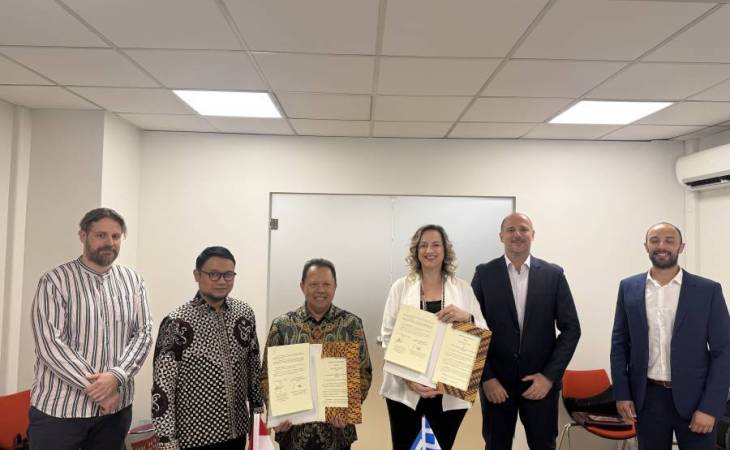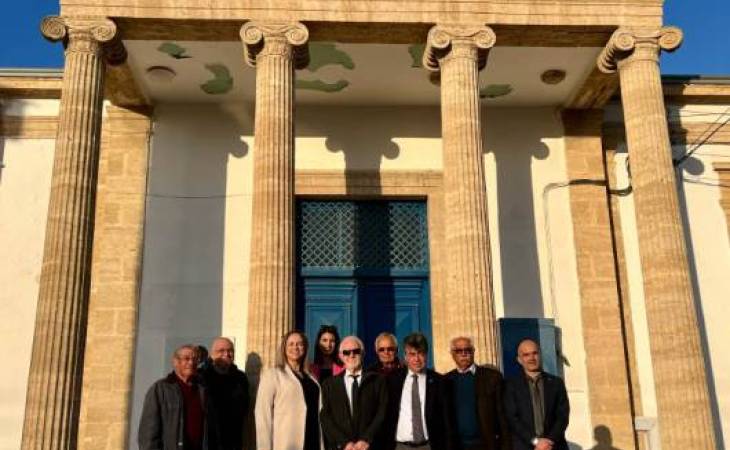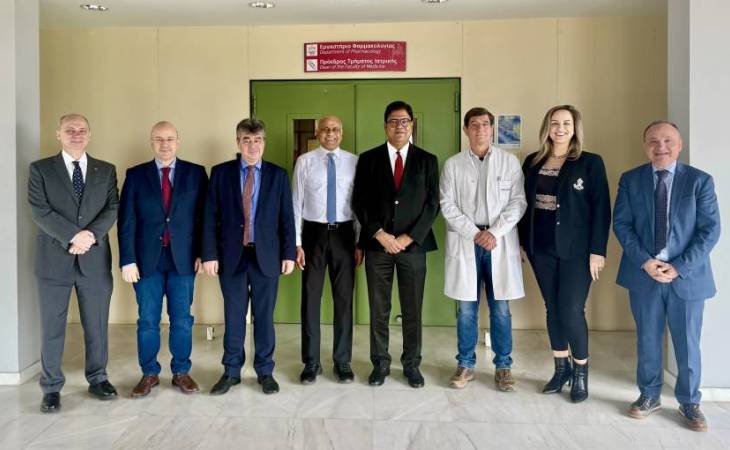A historic moment for the University of Thessaly, with the approval of three joint postgraduate programs in collaboration with globally renowned institutions such as Columbia University and Georgetown University (USA), and McGill University (Canada). This unprecedented achievement for a regional Greek university places the University of Thessaly among the key international academic partners, having secured the third-highest funding nationwide—after the Agricultural University of Athens and the National and Kapodistrian University of Athens.
The approval of the three proposals came under the action “Internationalization of Higher Education Services” of the Recovery and Resilience Fund “Greece 2.0,” following rigorous evaluation by the Hellenic Authority for Higher Education (HAHE). The total funding awarded exceeds €7 million.
The three programs are:
- Humanitarian Action and Inclusive Management of Public and One Health Challenges – A collaboration between the Department of Veterinary Medicine and Columbia University (USA), with scientific lead Rector Professor Charalampos Billinis. This pioneering program has been awarded €3,147,550 and will be implemented in partnership with academic institutions from Europe, East Africa, and Southeast Asia, including the Tanzanian Training Center for International Health (Ifakara, Tanzania), Dhaka University (Bangladesh), Kathmandu University (Nepal), and Fundacao Ensino e Cultura Fernando Pessoa (Portugal). The program promotes a holistic governance model for Public Health challenges.
- Joint Executive Master's Program in Leadership Education in Disability and Inclusion – A collaboration between the Department of Special Education and Georgetown University (USA), under the academic supervision of Assistant Professor Antonis Christou. This unique program, which received €1,326,000 in funding, focuses on developing leadership professionals in the field of Disability Rights. Its goal is to strengthen leadership in education, health, social policy, and child/family advocacy, fostering a culture of inclusion across all aspects of social life.
- Synthetic Biology – A collaboration between the Department of Biochemistry and Biotechnology and McGill University (Canada), led by Professor Konstantinos Mathiopoulos. This is the only Master's program in Synthetic Biology offered by a Greek university, in a rapidly growing field that integrates biology, engineering, and computer science to design and construct novel functional biological systems. Funded with €2,550,000, the program targets applications in critical areas such as medicine, agriculture, pharmaceuticals, and environmental technologies—contributing significantly to the development of the bioeconomy.
This success confirms the University of Thessaly’s growing momentum in advancing extroversion, innovation, and academic excellence. It proves that a regional university can play a pivotal role on the global academic map.
Following the announcement of the evaluation results, Rector Professor C. Billinis stated:
“Today's success reflects the major efforts underway at the University of Thessaly to enhance extroversion and the quality of services offered to both students and academic/research staff. The evaluation ranking and funding secured for our postgraduate programs bring great satisfaction and showcase the capabilities of our academic community. I extend my gratitude to all those working with us to achieve this creative international engagement—not only in Greece but globally.”
Vice-Rector for Innovation, Internationalization, Partnerships and Digital Governance, and Scientific Coordinator of the Internationalization Program, Professor Chrysi Laspidou, also commented:
“Today marks a moment of vindication for the vision and collective effort of our academic community. The global recognition these partnerships bring proves that the University of Thessaly can lead, collaborate as an equal with the world’s top universities, and create global-scale opportunities for our students and researchers. We continue with boldness and strategy to build bridges of knowledge, innovation, and sustainable development—supporting the integration of the United Nations Sustainable Development Goals (SDGs) across all our curricula, initiatives, and institutional practices.”










